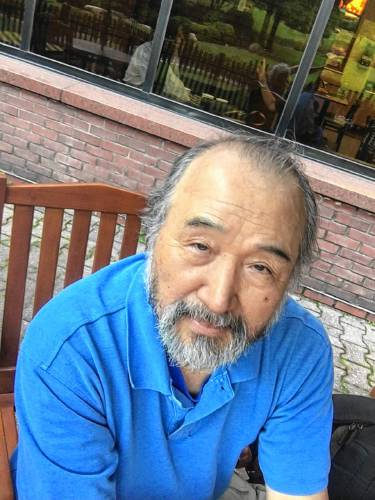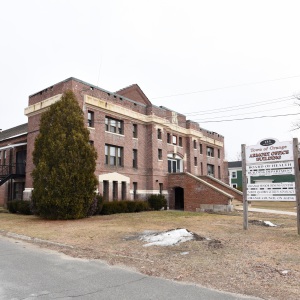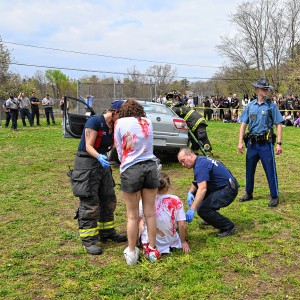As I See It: Why America’s doctors are demoralized and in crisis

Jon Huer
|
Published: 04-05-2024 7:01 PM
Modified: 04-05-2024 7:41 PM |
It’s uncommon for us to think that doctors, who help us out of trouble, could be in trouble themselves. Yes, they could be and, now behind the facade of prosperity and authority, they are in deep trouble. But, when doctors themselves are in trouble as social members, who can diagnose them and offer cures? Why, naturally, the doctors of society.
Just now, I happen to be a practicing sociologist with a Ph.D. — a doctor of society — and, since I have been helped by the medical specialists many times, I am going to return the favor this time by diagnosing what ails them.
Recently I developed two plumbing problems, one with the bathroom flushing that wouldn’t quit, and the other a severe heartburn after each meal in my digestive (plumbing) system. For the former, I called our plumber and within 10 minutes a very pleasant plumber showed up and fixed the problem. For the latter, I called my gastroenterologist and was told that my specialist was booked up for the next five months.
For the plumbing industry, it’s a perfect supply-and-demand balance. For the health care industry, that’s a lot of imbalanced overwork. In a society where we pay for the goods and services we choose, whether it’s about wayward commodes or uncooperative stomachs, these two contrasting business models are baffling.
Virtually all tradesmen we deal with in Greenfield — plumbers, painters, landscapers, roofers, auto mechanics, farmers, even Bonnie B’s, our favorite restaurant, and so on — seem happy doing their businesses with us. But, quite contrary to these trades, reports on America’s physicians are very grim: They are inhumanely overworked, professionally frustrated and personally unfulfilled. In fact, in contrast to their very high incomes, they are very low on the totem pole of life satisfaction. Obviously, money cannot buy happiness.
Eric Reinhart, himself a doctor, reports in The New York Times [Feb. 5, 2023, “We’re Demoralized by Our Health System”] that America’s doctors are suffering from “demoralization syndrome,” a state of mind they find in terminally ill patients who have lost all hope. Now, Dr. Reinhart writes, American physicians, demoralized and hopeless, are abandoning the dreams of their youth. Last year alone, says Reinhart, “Over 117,000 physicians left the workforce, while fewer than 40,000 joined it. And the situation is set to get worse. One in five doctors says he or she plans to leave practice in the coming years.” Many other writers describe how “demoralized” America’s doctors themselves are feeling, like terminally ill patients.
Why are doctors, the public envy number one in America, so demoralized? Reinhart explains: “The United States is the only large high-income nation that maintains a for-profit medicine — the diseased system for which we work.”
Here, we need to get acquainted with a category called “amateurs.” Before the rise of “professionals” largely in the last century, best represented by doctors and lawyers, the amateurs pursued their fields of interest for the sheer love of their work, not money. Many activities, like archeology in Egypt, explorations of the Arctic, Antarctic and Africa, and so on, were carried out by amateur scholars and adventurers who loved what their hearts and souls yearned.
Article continues after...
Yesterday's Most Read Articles
 Work on Pinedale Avenue Bridge connecting Athol and Orange to resume
Work on Pinedale Avenue Bridge connecting Athol and Orange to resume
 PHOTOS: Enchanted Orchard Renaissance Faire at Red Apple Farm
PHOTOS: Enchanted Orchard Renaissance Faire at Red Apple Farm
 Rice’s Roots Farm owner plans for community involvement for land’s future
Rice’s Roots Farm owner plans for community involvement for land’s future
 Orange Selectboard declares armory as surplus property
Orange Selectboard declares armory as surplus property
 ‘Arrive Alive’ shows Athol High School students the dangers of impaired driving
‘Arrive Alive’ shows Athol High School students the dangers of impaired driving
 Nature lovers gather at Adams Farm for hawk watch
Nature lovers gather at Adams Farm for hawk watch
This tradition lingered through the Olympians, student athletes and local theater clubs. As professionalism has historically replaced amateurism, and standardization supplanted quixotic idealism, we now accept careerism as our goal and money as its unquestioned reward.
Except doctors, who cling to Hippocratic idealism of medicine as healing art as if they are still amateurs, but interestingly, without rejecting lucrative benefits from capitalism. In essence, doctors believe it’s possible to serve both idealism and capitalism. Much of their professional life, this contradiction is papered over, as they perpetuate the myth of “doctors save lives” while promoting the reality of “rich doctors.” But, sooner or later, the contradiction between the myth of their ideals and the hypocrisy of their riches collide and keep them sleepless. Here lies the root cause of their trouble.
The most immediate casualty from this life of contradiction is the killing overwork in which specialist-doctors toil like assembly-line factory workers, who must endure the horrid repetitions of one body-unit every 30 minutes. They neither know their patients personally, nor enjoy the true reward of their healing work from grateful patients. Such massive overwork, seen commonly in Chinese sweatshops and Russian prison camps, bear witness to the daily collision between claims of service idealism and the pleasures of irresistible money.
In an industry where even a nurse’s smile is calculated in the bill, doctors want to have the cake and eat it, too. But, few doctors can continue such a life of deception without ultimately facing their inner demons of moral disgust toward their own overworked (and overpaid) exhaustion. As a daily struggle that never ends, doctors walk on thin ice that can break apart any time and drown those who fearfully walk on it. That’s American doctors in a nutshell and the source of their “demoralization syndrome.”
In utter irony, plumbers are happy to do their humble work for an honest day’s wages. Yet, the doctors of America, a million miles above plumbers in income and prestige, are a billion miles alienated from those they serve. As professionals who compete for reward and envy, they are splendidly successful. As craftsmen who acquire valuable skills for human service, they go home with a full pocket but an empty heart.
So here is my final diagnosis of doctors in trouble: Neither true humanistic idealists for their goal, nor honest wage-earners for their labor, doctors are squeezed to death between reality and hypocrisy.
We are, as doctors and as patients, all suffering in America’s medical purgatory.
Jon Huer, columnist for the Recorder and retired professor, lives in Greenfield.

